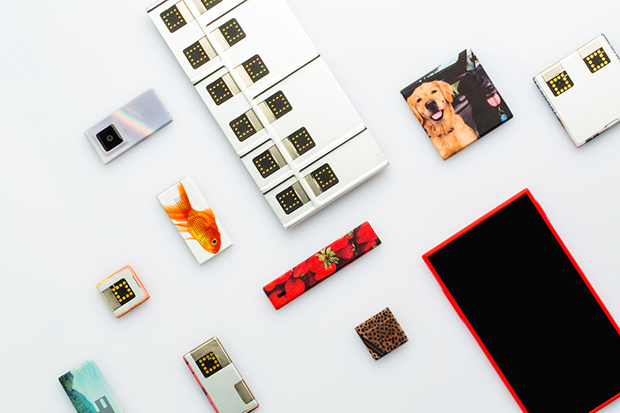Google’s Project Ara ‘LEGO’ Smartphone Heading To Puerto Rico For ‘Market Pilot’
Google’s efforts to build a modular, “LEGO” smartphone are coming closer to fruition. When we last visited Project Ara back in late December, Google was in the midst of testing early version of its Spiral 2 prototypes. At the time, project lead Paul Eremenko revealed that not only would production Ara smartphones be available in two form-factors, but they NVIDIA’s powerful Tegra K1 would be one of two possible processor options available to developers and consumers.
Today, during the Project Ara Module Developers Conference, Google provided another status update on its modular smartphone efforts, and things are progressing nicely. Spiral 2 prototypes mark a huge upgrade from the earlier Spiral 1 devices, bringing 3G connectivity (Spiral 1 prototypes only featured Wi-Fi connectivity options), speaker modules, support for extended batteries, and hot swap capabilities.
Spiral 3 prototypes, which are expected during Q2 2015, will bring 4G LTE connectivity, class-competitive camera modules, and day-long battery life. Spiral 3 is also where Puerto Rico comes into play for Google. Once Google has had time to fully test its Spiral 3 prototypes, it will rollout a “market pilot” exclusively in Puerto Rico.
Now you might be thinking to yourself, “Why the heck would Google choose Puerto Rico to launch a pilot for its highly anticipated modular smartphone?” I was right there with you at first, but Google has a vision for why this will work. Google says that Puerto Rico is the perfect test bed for Spiral 3 prototypes because 1) it has a diverse mobile user base covering the gamut from entry-level to premium smartphones, 2) 77 percent of Puerto Ricans use cell phones as their primary access to the Internet, and 3) Puerto Ricans have access to mainland U.S. carriers (like AT&T and T-Mobile), Latin American carriers, and local carriers. Google will work with two local carrier during the market pilot: Claro and Open Mobile.
Google is also taking a rather “distinctive” approach to selling its Project Ara smartphones to Puerto Ricans; it will use repurposed food trucks that will not only provide live demos, but also sell the basic phone frame (which is expected to cost around $50) and the modules that plug into the frame. By the time Project Area officially launches, Google hopes to have between 20 to 30 modules (processors, memory, batteries, cameras, USB charging ports, etc.) available to purchase.
“Consumers actually crave choice, but when presented with choice, they seize up–and when they make a choice, they frequently have remorse about making the wrong one,” said Eremenko. “Ara is full of choices. We have to carefully curate and manage the experience. We have a variety of hypothesis, but we need to test them in the field.”
Project Ara opens up a whole new realm of possibilities when it comes to the future of smartphones, and we can’t wait to see what Google has in store for us in the years to come.




